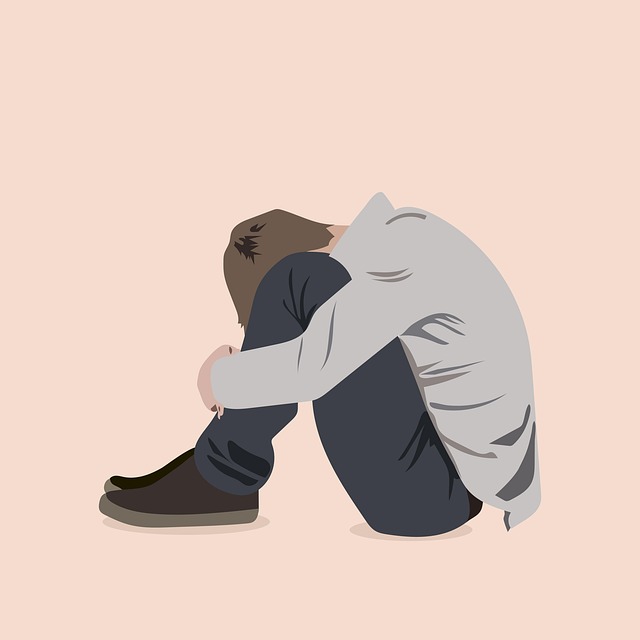Depression in teens often goes unnoticed but is serious. Recognize symptoms like persistent sadness, changes in appetite/sleep, and lack of interest. Encourage open conversations and consider therapy for depressed teenagers to manage symptoms and promote long-term well-being. Look for behavioral & cognitive signs like irritability, withdrawal, headaches, concentration issues, and self-esteem problems. Early intervention through specialized therapies like CBT or interpersonal therapy prevents complications, empowering teens for happier lives.
Recognizing depression in teenagers is crucial for providing timely support. This age group often exhibits unique symptoms distinct from adults, making early detection challenging yet vital. In this article, we explore common signs of teen depression, including behavioral shifts and physical/cognitive indicators. We guide you through navigating the process of identifying when a teenager needs therapy for depressed teens, emphasizing the importance of professional assistance. By understanding these signs, parents and caregivers can foster open conversations and ensure their teenagers receive the necessary help.
Understanding Teen Depression: Common Symptoms
Depression in teenagers is a serious issue that often goes unnoticed. It’s crucial to understand that teen depression presents differently than adult depression, with common symptoms including persistent sadness, changes in appetite and sleep patterns, lack of interest in activities once enjoyed, fatigue, difficulty concentrating, feelings of worthlessness or guilt, and thoughts of death or suicide.
Recognizing these signs is the first step towards getting help. If you suspect a teenager is struggling with depression, encourage open conversations and consider seeking professional support, such as therapy for depressed teenagers. Early intervention can make a significant difference in managing symptoms and promoting long-term well-being.
Behavioral Changes to Look Out For
Depression in teenagers often manifests as significant changes in their behavior and daily routines. Parents, caregivers, and close friends should be vigilant regarding sudden shifts in mood and actions that could indicate a struggle with mental health. Some behavioral signs to watch for include a withdrawal from social activities they once enjoyed, a decline in academic performance, or a noticeable increase in irritability and anger.
Teenagers undergoing depression might also exhibit unusual fatigue, changes in appetite and sleep patterns, and a general lack of motivation. They may lose interest in hobbies, sports, or other activities that were previously important to them. If you notice these changes and suspect your teen is dealing with depression, encouraging open conversations about their feelings can be the first step towards providing the necessary support. Consider suggesting therapy for depressed teenagers as a professional environment where they can learn coping strategies and regain a sense of well-being.
Recognizing Physical and Cognitive Signs
Recognizing physical and cognitive signs is crucial when it comes to identifying depression in teenagers, as these symptoms can often manifest in subtle ways. Changes in behavior, such as increased irritability, withdrawal from social activities, or sudden changes in appetite and sleep patterns, are common indicators. Physically, look out for signs like frequent headaches, fatigue, or even changes in body weight. These may not be immediately obvious, but they could point to a teenager struggling with their mental health.
Cognitively, depression can cause difficulties in concentration, decision-making, and memory. Teenagers might experience a sense of hopelessness, have negative thoughts about themselves or the world around them, and struggle with low self-esteem. These cognitive signs often correlate with a lack of interest in activities they once enjoyed and a general feeling of disengagement from daily life. Recognizing these patterns can be instrumental in encouraging teenagers to seek therapy for depressed teenagers, which offers much-needed support and guidance.
When to Seek Therapy for Depressed Teenagers
If you notice persistent signs of depression in your teenager, it’s crucial to consider seeking professional help. Therapy for depressed teenagers can be a game-changer, offering specialized support tailored to their unique needs and challenges. Many teens struggle with emotional regulation, social interactions, and coping mechanisms during this pivotal phase of life, making therapy an essential tool for recovery.
Early intervention is key; the earlier a teenager receives therapy, the more effective it can be in preventing long-term complications. There are various therapeutic approaches suitable for adolescents, such as cognitive behavioral therapy (CBT), which helps identify and change negative thought patterns, and interpersonal therapy, focusing on improving relationships and social skills. Remember, reaching out for therapy is not a sign of weakness but rather a proactive step towards empowering your teenager to lead a healthier, happier life.
Recognizing depression in teenagers is a vital step towards ensuring they receive the necessary support. By understanding common symptoms, behavioral shifts, and physical indications, parents and caregivers can effectively navigate this challenging conversation. If concerns arise, seeking professional help through therapy for depressed teenagers is a proactive approach to foster healing and well-being. With prompt intervention, teens can find relief and regain a sense of optimism.
